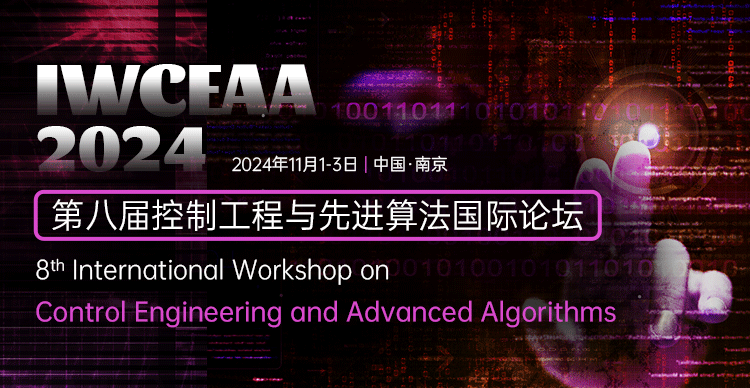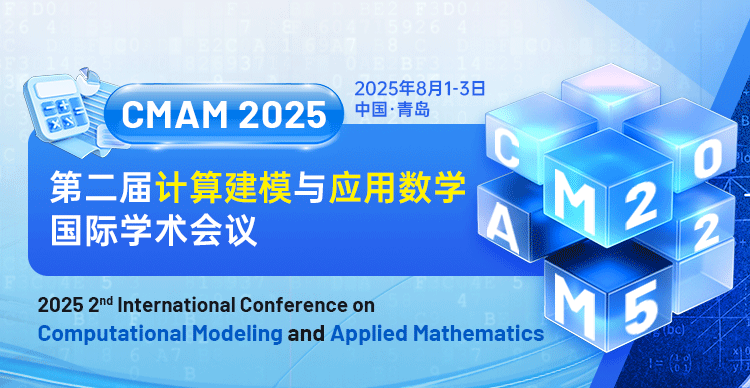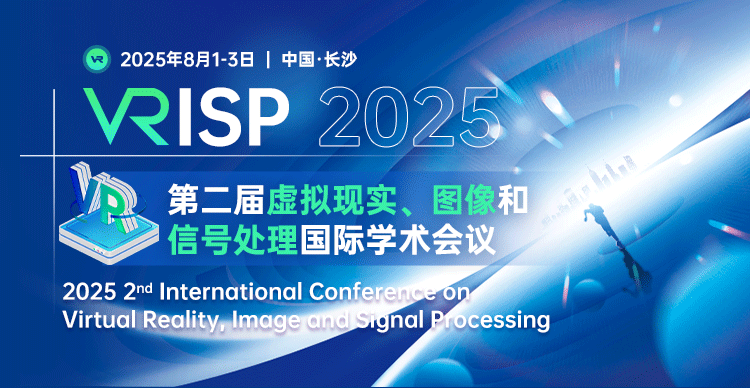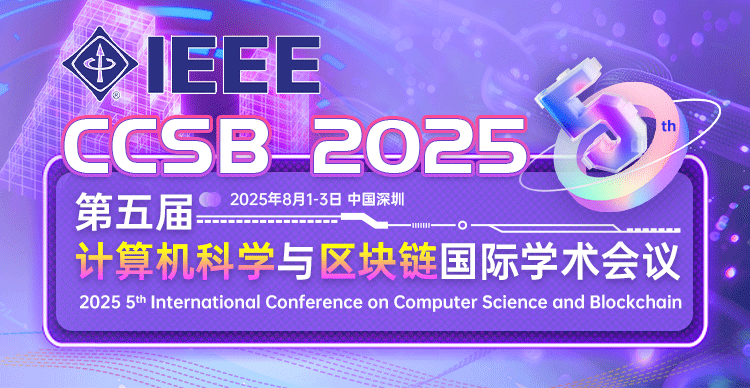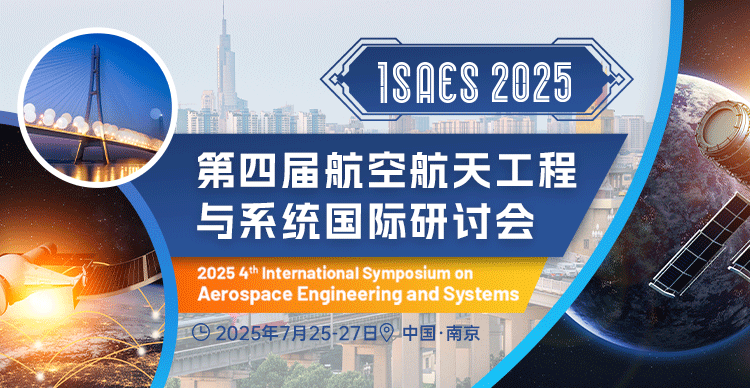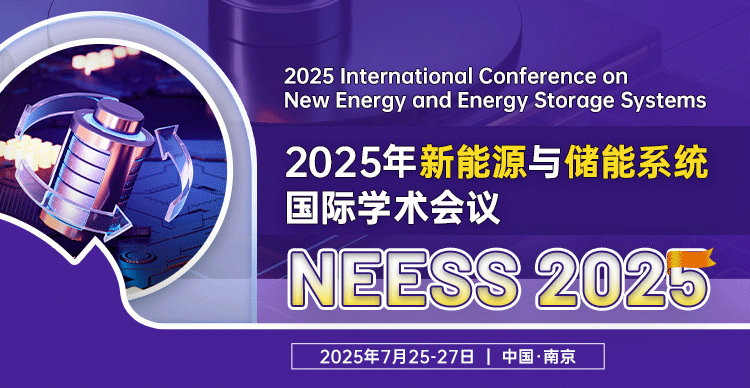第八届控制工程与先进算法国际论坛
2024 8th International Workshop on Control Engineering and Advanced Algorithms
大会介绍
第八届控制工程与先进算法国际论坛(IWCEAA 2024)将于2024年11月1-3日在中国南京隆重举行。会议旨在为从事算法、控制工程与计算机技术研究的专家学者、工程技术人员、技术研发人员提供一个共享科研成果和前沿技术,了解学术发展趋势,拓宽研究思路,加强学术研究和探讨,促进学术成果产业化合作的平台。大会诚邀国内外高校、科研机构专家、学者,企业界人士及其他相关人员参会交流。
2024年,会议名称调整至第八届控制工程与先进算法国际论坛( 8th International Workshop on Control Engineering and Advanced Algorithms),会议简称更新为IWCEAA,该会议往届已完成检索。
组织单位
Sponsor
南京工业大学
Supporter
南开大学
扬州大学
河北工业大学
SIMON FRASER UNIVERSITY
UNIVEWSITE Concordia UNIVERSITY
主讲嘉宾
Prof. Simon X. Yang
加拿大圭尔夫大学
Prof. Chun-Yi Su
加拿大康考迪亚大学
孙宁 教授
南开大学
冒泽慧 教授
南京航空航天大学
刘亚俊 教授
华南理工大学
征稿主题
1)算法和数据结构
2)人工智能
3)电气系统
4)机器学习、智能数据分析和数据挖掘
5)数学和计算机模拟
6)系统和自动化
7)过程控制
8)网络与系统集成
9)计算机控制系统
10)自动测试与故障诊断
11)产品质量控制
12)工业控制技术
出版信息
所有的投稿都必须经过2-3位组委会专家审稿,最终所录用的论文将由IEEE出版(ISBN:979-8-3315-2888-1),见刊后由出版社提交至IEEE Xplore, EI, Scopus检索。
注意事项:
& 已录用论文请及时注册,逾期注册,默认放弃发表。
& 论文需按照会议论文模板排版,投稿需要提交WORD与PDF格式文件,且不得少于4页。
& 论文应具有学术或实用价值,且从未在国内外任何期刊或会议发表过。作者可通过CrossCheck, Turnitin(查重率低于30%)或其他查询系统自费查重。由文章重复率引起的出版社拒搞,作者需自行承担责任。确认学术造假的论文将不被出版,且公布在会议主页。
- About IWCEAA 2024 -
What is the Latest in Control Engineering?
The 2024 8th International Workshop on Control Engineering and Advanced Algorithms (IWCEAA 2024) will be held on November 1-3 2024 in Nanjing China. IWCEAA 2024 is to bring together innovative academics and industrial experts in the field of Advanced Algorithms and Control Engineering to a common forum. The primary goal of the conference is to promote research and developmental activities in Advanced Algorithms and Control Engineering and another goal is to promote scientific information interchange between researchers developers engineers students and participant working all around the world. The conference will be held every year to make it an ideal platform for people to share views and experiences in Algorithms and Control Engineering and related areas.
Control Engineering: Now and in the Future Planned highlights of IWCEAA 2023 include:
● Addresses and presentations by some of the most respected researchers in the Advanced Algorithms and Control Engineering
● Panel discussions
● Presentations of accepted academic and practitioner research papers; a poster paper session
IMPORTANT DATES
Full Paper Submission Date
September 27 2024
Registration Deadline
October 10 2024
Final Paper Submission Date
October 20 2024
Conference Dates
November 1-3 2024
SPEAKERS
Prof. Simon X. Yang
University of Guelph CanadaProf. Simon X. Yang received the B.Sc. degree in engineering physics from Beijing University China in 1987 the first of two M.Sc. degrees in biophysics from Chinese Academy of Sciences Beijing China in 1990 the second M.Sc. degree in electrical engineering from the University of Houston USA in 1996 and the Ph.D. degree in electrical and computer engineering from the University of Alberta Edmonton Canada in 1999. Prof. Yang joined the School of Engineering at the University of Guelph Canada in 1999. Currently he is a Professor and the Head of the Advanced Robotics & Intelligent Systems (ARIS) Laboratory at the University of Guelph in Canada.
Prof. Yang has diversified research expertise. His research interests include intelligent systems robotics control systems sensors and multi-sensor fusion wireless sensor networks intelligent communications intelligent transportation machine learning and computational neuroscience. He has published over 600 academic papers including over 350 journal papers. Prof. Yang he has been very active in professional activities. He serves as the Editor-in-Chief of Intelligence & Robotics and International Journal of Robotics and Automation; and an Associate Editor of IEEE Transactions on Cybernetics IEEE Transactions on Artificial Intelligence and several other journals. He has been involved in the organization of many international conferences.
ti
Abstract:Intelligent control of autonomous underwater vehicles (AUVs) are essentially important for many important applications such as security surveillance environmental monitoring and exploration in rivers lakes and seas particularly in unstructured hazardous and complex environments. In this talk a bio-inspired neural network system is first developed for real-time AUV path planning with the effect of dynamic currents and unpredictable obstacles by integrating a velocity synthesis algorithm. Then the bio-inspired neural network is extended to dynamic task assignment and path planning in a multi-AUV system where optimal results are obtained through a priority list derived by path distances deducted ba
Prof. Chun-Yi Su
Concordia University Canada
Dr. Chun-Yi Su received his Ph.D. degrees in control engineering from South China University of Technology in 1990. After a seven-year stint at the University of Victoria he joined the Concordia University in 1998 where he is currently a Professor of Mechanical and Industrial Engineering and Honorary Concordia University Research Chair. His research covers control theory and its applications to various mechanical systems with a focus on control of systems involving hysteresis nonlinearities. He is the author or co-author of over 500 publications which have appeared in journals as book chapters and in conference proceedings. He has been identified as Highly Cited Researchers from Clarivate since 2019.
Dr. Su has served as Associate Editor for several journals including IEEE Transactions on Automatic Control IEEE Transactions on Control Systems Technology IEEE Transactions on Cybernetics and several other journals. He is a Distinguished Lecturer of IEEE RA Society. He served for many conferences as an Organizing Committee Member including the General Chairs and Program Chairs.
Prof. Ning Sun
Nankai University ChinaNing Sun received the B.S. degree in measurement & control technology and instruments (with honors) from Wuhan University Wuhan China in 2009 and the Ph.D. degree in control theory and control engineering (with honors) from Nankai University Tianjin China in 2014. He is a Senior Member of the IEEE. He is currently a Professor with the Institute of Robotics and Automatic Information Systems Nankai University Tianjin China. His research interests include intelligent control for mechatronic/robotic systems with an emphasis on (industrial) applications.
Dr. Sun received the Machines 2021 Young Investigator Award the prestigious Japan Society for the Promotion of Science (JSPS) Postdoctoral Fellowship for Research in Japan (Standard) the Wu Wenjun Artificial Intelligence Excellent Youth Award in 2019 the ICCAR 2022 Young Scientist Award the China 10 Scientific and Technological Developments in Intelligent Manufacturing of 2019 several outstanding journal/conference paper awards etc. He serves as an Associate Editor for several journals including IEEE Transactions on Industrial Electronics IEEE Transactions on Systems Man and Cybernetics: Systems IEEE Transactions on Intelligent Transportation Systems IEEE Systems Journal and Journal of Field Robotics. In addition he has been an Associate Editor of the IEEE CSS Conference Editorial Board since July 2019 and he is/was an Associate Editor for the top robotics conferences IEEE ICRA and IEEE/RSJ IROS.
ti
Abstract: As heavy industrial engineering machines cranes have been playing very important roles in various fields such as logistics construction me
Prof. Zehui Mao
Nanjing University of Aeronautics and Astronautics China
Zehui Mao (Member IEEE) received the Ph.D. degree in control theory and control engineering from the Nanjing University of Aeronautics and Astronautics Nanjing China in 2009.She is currently a Professor with the College of Automation Engineering Nanjing University of Aeronautics and Astronautics. She was a Visiting Scholar with the University of Virginia Charlottesville VA USA. She worked in the areas of fault diagnosis with particular interests in nonlinear control systems sampled-data systems and networked control systems. Her current research interests include fault diagnosis and fault-tolerant control of systems with disturbance and incipient faults and high-speed train and spacecraft flight control applications.
Prof. Yajun Liu
South China University of Technology China
Prof. Yajun Liu was born on September 20 1974 in Jiangxi China. Native speaker of Chinese fluent in English. His Education and Academic Research Experiences is as follows: December 2016- Now Professor in South China University of Technology School of Mechanical and Automotive Engineering. December 2009- December 2010. Visiting Professor in Fluid Power Research Center (FPRC) Purdue University at West Lafayette USA. Feb 2005 – July 2016. Post-doctoral Research Fellow Tokheim JV company in China. June 2002 Ph. D. in Mechanical Engineering. South China University of Technology GuangzhouChina.
His research interests include Digital signal processing technology and its application in mechanical systems (such as hydraulic System for Energy Saving.); Intelligence control and Manufacturing Engineering. Moreover Prof. Yajun Liu has published more than 270 papers in Journals and proceedings of international conferences. 40+ patents on Mechanical System design and manufacturing. My tentative ti
ti
Abstract:Fire is a common and destructive disaster in modern society and traditional fire detection methods have limitations in terms of accuracy and speed. In this study an artificial intelligence-ba
- CALL FOR PAPERS -
The topics of interest for submission include but are not limited to:
Topics
* Algorithms and Data Structures
* Artificial Intelligence
* Electrical Systems
* Machine Learning Intelligent Data Analysis and Data Mining
* Mathematical and Computer Simulation
* Systems and Automation
* Process Control
* Network and System Integration
* Computer Control System
* Automatic Test and Fault Diagnosis
* Industrial Control Technology
PUBLICATION
Submit to Conference Proceedings (EI)
All accepted full papers will be published in IEEE and will be submitted to EI Compendex / Scopus for indexing.
Note: All submitted articles should report original research results experimental or theoretical not previously published or under consideration for publication elsewhere. Articles submitted to the conference should meet these criteria. We firmly believe that ethical conduct is the most essential virtue of any academics. Hence any act of plagiarism or other misconduct is totally unacceptable and cannot be tolerated.


